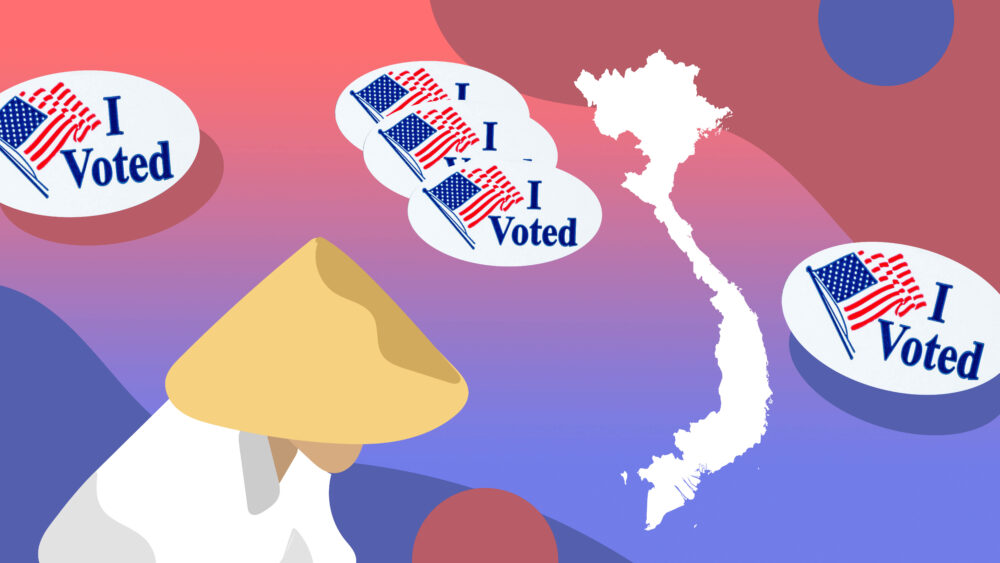
By Katy Nguyen
If you’re a Vietnamese American student and you’ve been paying attention to politics for the past four years, you may have felt a political tension unique to the Vietnamese American community.
Vietnamese American voters are more likely to vote for Trump in this election than any other Asian American group, in part to older Vietnamese Americans’ general identification with the Republican party dating back to the 1970s.
And this group’s reliance on Vietnamese-language channels, especially certain YouTube channels known for spreading misleading or inaccurate information, can heighten tensions between those in the community.
This is not uncommon in communities of color and immigrant communities that face difficulties understanding the news generated by major news outlets. In Latino communities, for example, Spanish-speaking news channels have been pitting voters against the Black Lives Matter movement.
Some younger Vietnamese-Americans, frustrated with such inaccuracies, have initiated efforts to combat such misinformation. For example, Cookie Duong and Jady Chan founded The Interpreter, a news aggregator site that translates reliable news sources from English to Vietnamese.
Regardless of Duong and Chan’s efforts, there remains a clear generational divide in the Vietnamese American community. This divide causes friction even between friends and family, and there have been reports of heightening tensions among Vietnamese Americans.
Many Fountain Valley High School students are familiar with such tensions.
“It’s definitely very frustrating because the older generation is voting against things that would benefit them. I know part of it is because language resources are limited and I struggle to explain issues to them because my vocabulary is not the best,” senior Victoria Nguyen said. “Something that bothers me also is that the older generation is so unwilling to change their views once they believe in something.”
Despite the differences in opinion, Duong and her father, like many Vietnamese American families, believe it is possible to stay engaged in a civil dialogue.
In a BBC video, Duong, a Democrat, discusses politics with her father, who is conservative, over dinner. Her father tells her in Vietnamese, “Even though we move away from each other in political opinions, we can still find a way to talk about them.”





